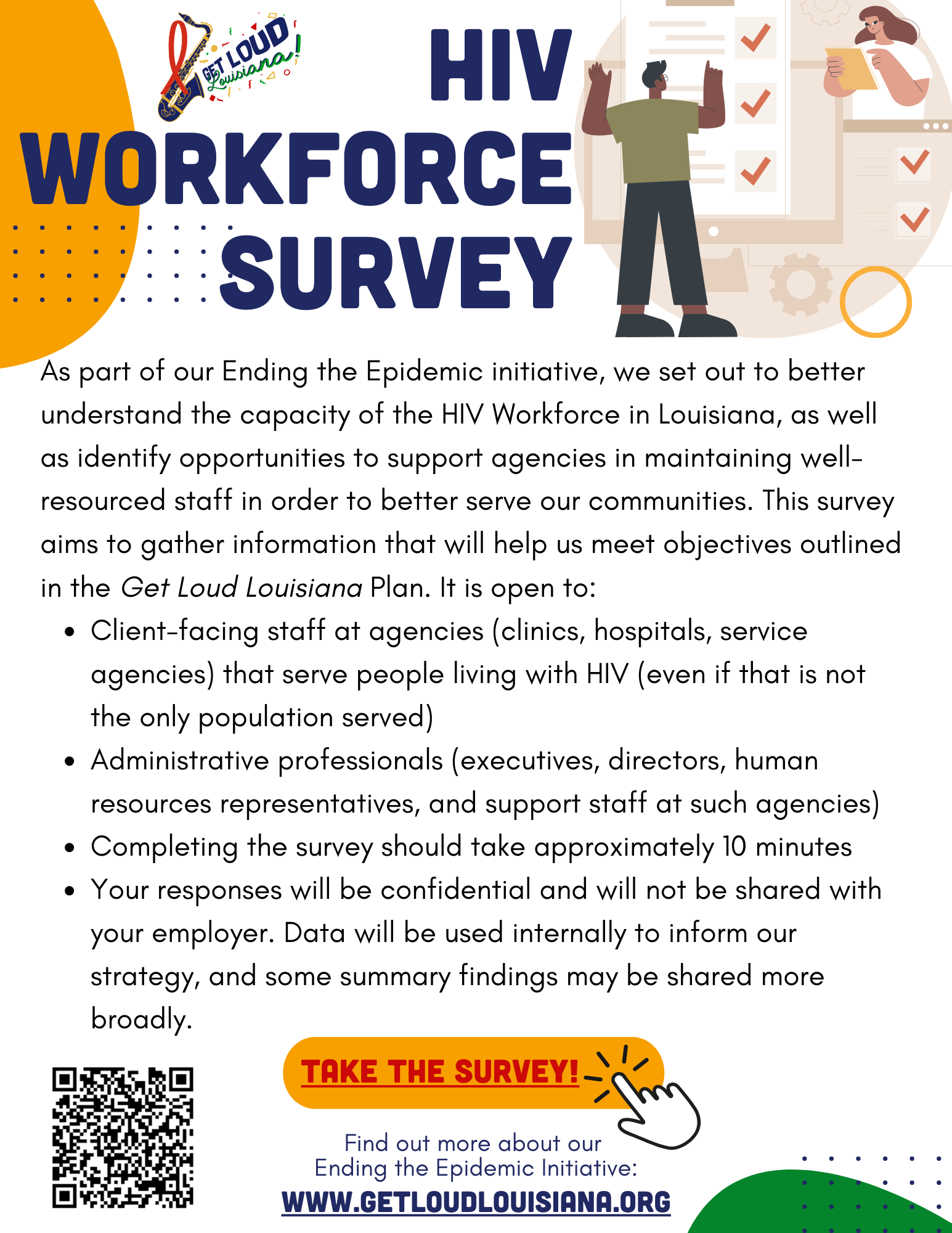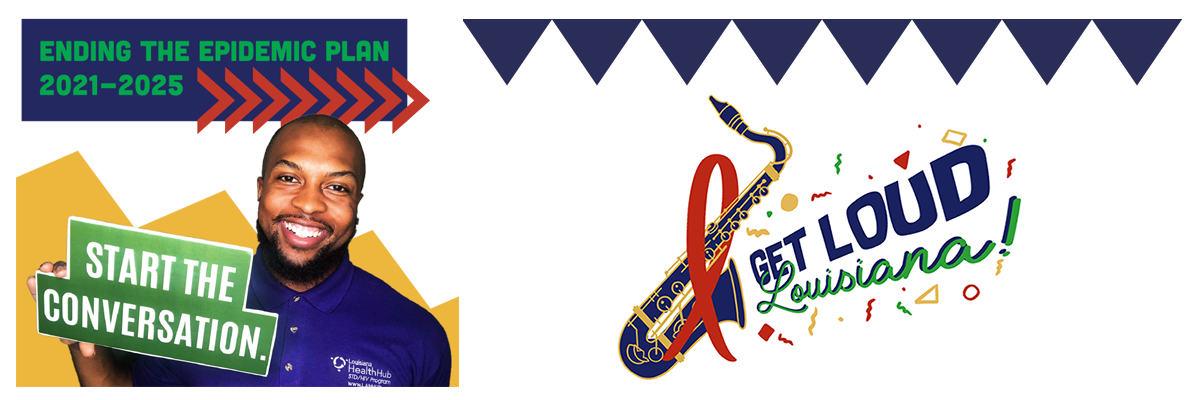

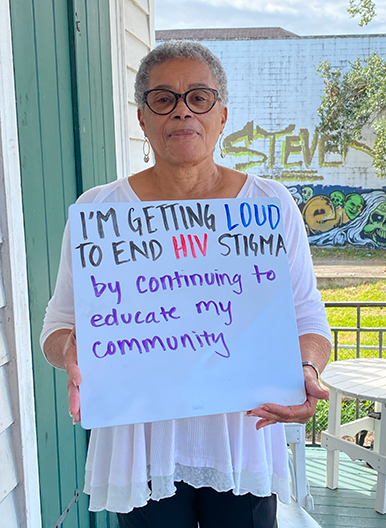 Louisiana has a deep history and unique culture formed over centuries, marked by trauma stemming from causes such as too many devastating hurricanes (including several during the writing of this plan) and systemic racism dating back to our beginnings during the Trans-Atlantic Slave Trade. !at same history has also made Louisiana a beautiful melting pot of Black, French, Spanish, Haitian, African, and Indigenous people that has given rise to Creole and Cajun cultures, including our own languages and cuisine. !at history has also birthed musical genres and styles of dance from Jazz to Bounce and Zydeco, Second Lines and Mardi Gras Krewes, and so much more.
Louisiana has a deep history and unique culture formed over centuries, marked by trauma stemming from causes such as too many devastating hurricanes (including several during the writing of this plan) and systemic racism dating back to our beginnings during the Trans-Atlantic Slave Trade. !at same history has also made Louisiana a beautiful melting pot of Black, French, Spanish, Haitian, African, and Indigenous people that has given rise to Creole and Cajun cultures, including our own languages and cuisine. !at history has also birthed musical genres and styles of dance from Jazz to Bounce and Zydeco, Second Lines and Mardi Gras Krewes, and so much more.
Today, Louisiana is known for many things —its food, music, and football, to name a few. But most of all, it’s the people that make Louisiana so special. It is perhaps because of the unique shared adversity that comes with living in a place like this, namely the frequency of storms and the impacts they have on our homes, health, and livelihoods, that Louisianans are the type of people who will always help a neighbor in need and who are always ready to celebrate life together.
This plan was written with these people —our communities—in mind, and with our history and the unique landscape in which we live guiding our strategy. Louisiana has made some major progress over the past several years when it comes to HIV. Last year, the Office of Public Health announced that the number of people newly diagnosed with HIV in Louisiana had declined over 20% in the past four years from 1,124 new cases in 2016 to 989 in 2018, and 891 in 2019. 2018 was the first year since 2005 that there have been fewer than 1,000 new HIV diagnoses, and the downward trend we saw in 2019 has brought us to the lowest number of new diagnoses since the epidemic began in the 1980s. However, we still have a lot of work to do in order to meet 2030 targets. According to the CDC, Louisiana ranked 4th in the nation for HIV case rates in that same year. Stigma and misinformation still work to slow our progress, as do difficulties in accessing testing and treatment services.
The five-year plan laid out across the following pages reflects the collaboration of so many individuals, community-based organizations, and a variety of stakeholders from around the state. We will take you through our guiding principles, our overarching goals, the process that brought us to this point, and how you can join the movement and Get Loud too. We will then outline our objectives and strategies in five focus areas, highlighting the amazing work and experiences of people living with HIV (PLWH), healthcare workers, and advocates doing the work across Louisiana along the way.


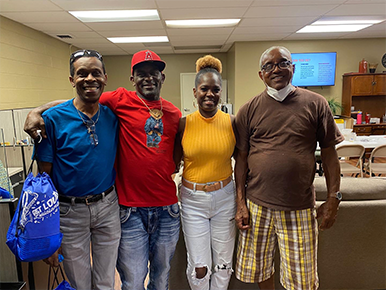 Many community leaders across the United States are calling for an end to the HIV epidemic in their cities, their counties, and their states through the development of Ending the Epidemic (EtE) plans. We now have the tools to effectively do just that— from PrEP (Pre-Exposure Prophylaxis) which allows people to remain HIV-negative and much-improved medications that allow PLWH to enjoy the same life expectancy as people without, to proof that Undetectable=Untransmittable (U=U) allows PLWH to prevent the transmission of HIV to intimate partners. We are in a position to create ambitious and bold plans to improve health outcomes for all people living with and vulnerable to HIV, reducing its impact and bringing new infections below epidemic levels.
Many community leaders across the United States are calling for an end to the HIV epidemic in their cities, their counties, and their states through the development of Ending the Epidemic (EtE) plans. We now have the tools to effectively do just that— from PrEP (Pre-Exposure Prophylaxis) which allows people to remain HIV-negative and much-improved medications that allow PLWH to enjoy the same life expectancy as people without, to proof that Undetectable=Untransmittable (U=U) allows PLWH to prevent the transmission of HIV to intimate partners. We are in a position to create ambitious and bold plans to improve health outcomes for all people living with and vulnerable to HIV, reducing its impact and bringing new infections below epidemic levels.
As of June 30, 2020, a total of 22,401 persons were living with HIV in Louisiana; of these individuals, 11,217 persons (50%) have an AIDS diagnosis. In 2018, Louisiana ranked 4th in the nation for HIV and AIDS case rates (21.2 per 100,000 and 9.1 per 100,000 population, respectively) and 11th and 12th in the number of estimated HIV and AIDS cases, respectively. Rates of other sexually transmitted infections (STIs) also remain high in Louisiana. In 2018, Louisiana ranked 2nd in chlamydia case rates, 5th for gonorrhea, and 7th for syphilis. While estimating the number of people living with Hepatitis C (Hep C) is a challenge due to historically low rates of testing, our data suggest that at the end of 2019, there were 63,450 people in Louisiana living with chronic Hep C.

We thought a lot about what we want this plan to accomplish and about what ties us together. First, we see this as an opportunity to do something different! We want to step out of the box to create something truly bold and innovative. We want to start talking more about HIV, STIs, Hep C, and sexual health. We want to break down the stigma and misconceptions that surround HIV, Hep C and STIs. We want to li% up the voices of those who are living with HIV and those who are impacted—and make sure they are the ones leading the way forward.
Second, we thought about what brings us together as a state—and what do Louisianans love more than anything (except maybe Maw-maw’s gumbo)? MUSIC. Whether it’s Jazz, Bounce, Zydeco, Blues, or Country: when it starts playing, we can’t help but get up and move! that is the kind of excitement we want to bring to this plan and to the work. We want to bring people in, demonstrate what we all have in common, celebrate what makes us different, and work together to find solutions so that we can all lead healthy, full lives. We aren’t going to end the epidemics unless we do it together.

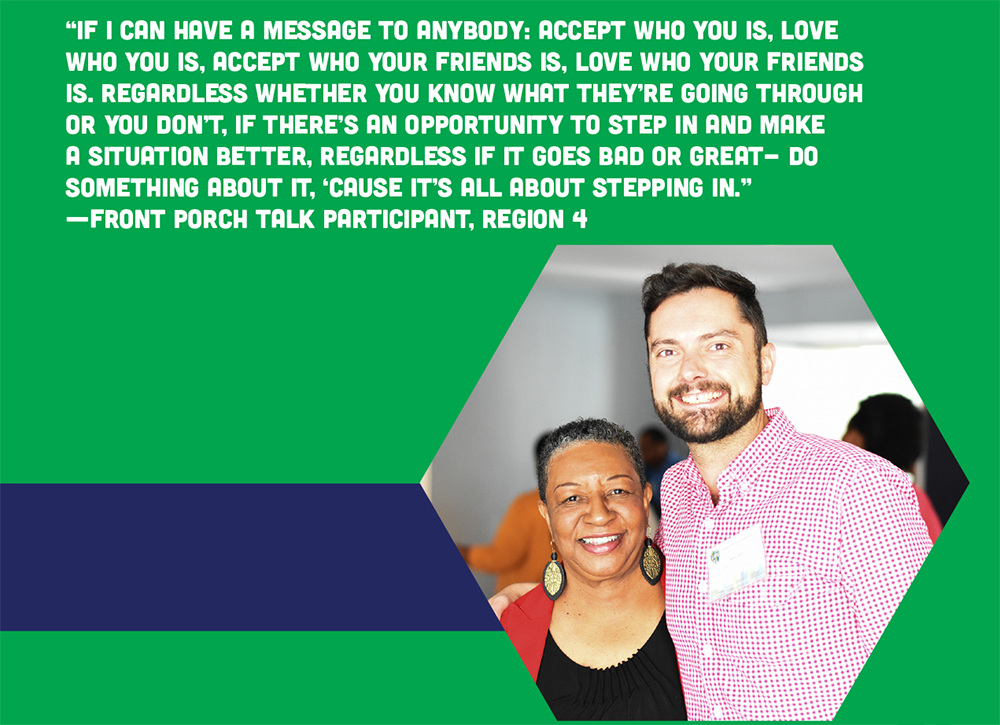

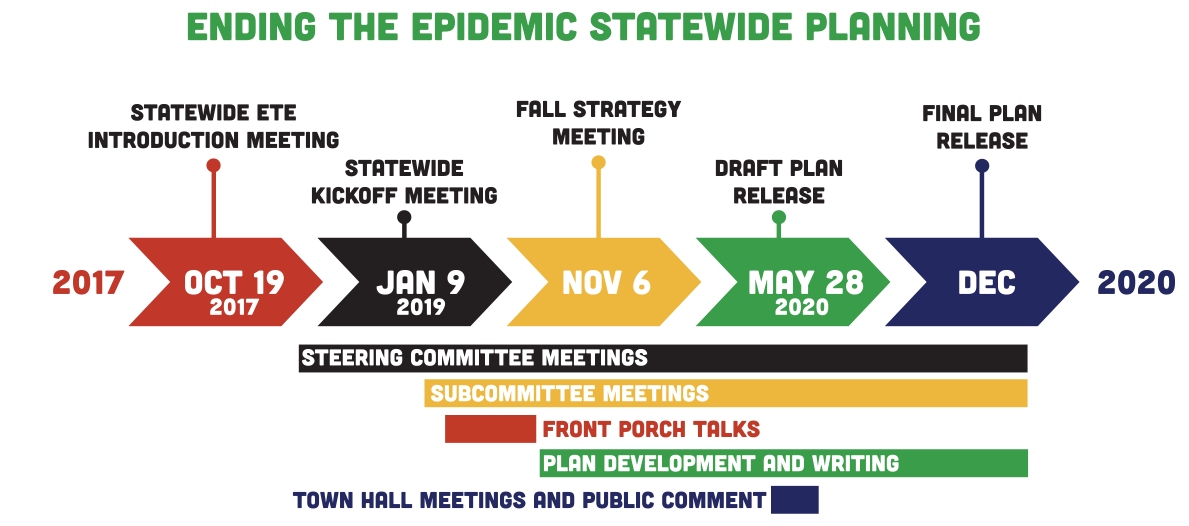


 Public health practitioners and community advocates began conversations of taking on an Ending the Epidemic Plan in Louisiana in late 2017. However, when the decision was made to embark on the development of an EtE plan, the Louisiana Department of Health wanted to be intentional about meaningful involvement of the community, particularly PLWH. They began a search for a community-based organization to lead the charge. About one year later, in 2018, they enlisted the help of Women With A Vision, a social justice organization with roots in the early days of the HIV Epidemic and 30 years of history working with communities of color and marginalized populations, to gather community input and ensure a community-driven process.
Public health practitioners and community advocates began conversations of taking on an Ending the Epidemic Plan in Louisiana in late 2017. However, when the decision was made to embark on the development of an EtE plan, the Louisiana Department of Health wanted to be intentional about meaningful involvement of the community, particularly PLWH. They began a search for a community-based organization to lead the charge. About one year later, in 2018, they enlisted the help of Women With A Vision, a social justice organization with roots in the early days of the HIV Epidemic and 30 years of history working with communities of color and marginalized populations, to gather community input and ensure a community-driven process.
The process was reinvigorated when 70 providers, community members, advocates, and public health workers from around the state came together again at a statewide meeting in Lafayette in January 2019 to identify barriers, priorities, and solutions for how to improve the lives of those living with, and impacted by, HIV and how to End the HIV Epidemic in Louisiana.
Between March and July 2019, the team traveled across the state holding a series of community conversations, or Front Porch Talks, with 15 groups in six cities, including Baton Rouge, New Orleans, Lafayette, Lake Charles, Monroe, and Shreveport, to gather feedback to inform the statewide EtE plan – and to recruit community members to engage at all levels of the planning process, by joining subcommittees focused on our five priority areas, as well as our coordinating bodies, the Steering Committee and Core Team.
 Key themes arising from the Front Porch Talks would form the backbone of our plan and can be seen throughout our plan. Examples include a need for community education around HIV and safer sex practices, improved transportation services, stable housing, more holistic approaches to care, better availability of information on where to access care and other resources such as mental health care and substance use supports. Stories of stigma and discrimination were widespread, including in medical settings, and reinforced our need to focus our sights on stigma reduction before all else.
Key themes arising from the Front Porch Talks would form the backbone of our plan and can be seen throughout our plan. Examples include a need for community education around HIV and safer sex practices, improved transportation services, stable housing, more holistic approaches to care, better availability of information on where to access care and other resources such as mental health care and substance use supports. Stories of stigma and discrimination were widespread, including in medical settings, and reinforced our need to focus our sights on stigma reduction before all else.
The team then entered a stage of synthesizing feedback from community meetings and committee meetings to begin drafting the goals, strategies, and activities that would become our Statewide EtE Plan. A second statewide meeting was held in November 2019 to bring participating members back together to spend time developing our objectives in workgroups.
Throughout 2020, subcommittees met to continue drafting strategies and activities for both a detailed work plan and the community plan you are reading today. Working during the COVID-19 Pandemic certainly changed the course of the work in many ways. Our team had intended to revisit the groups we met with during our Front Porch Talks to provide updates, and planned for five in-person town hall meetings around the state to share our work with new stakeholders.
Instead we offered virtual community conversations to debrief around how COVID-19 was impacting our communities and held two virtual town halls and an online public comment period in the Spring of 2020 to share our draft plan with a broader audience and to give community members the opportunity to let us know if we were still on the right track. With positive feedback, we moved forward to refine both our community-facing plan and a detailed work plan that will be used to guide our way as we move into our implementation and monitoring and evaluation phases.



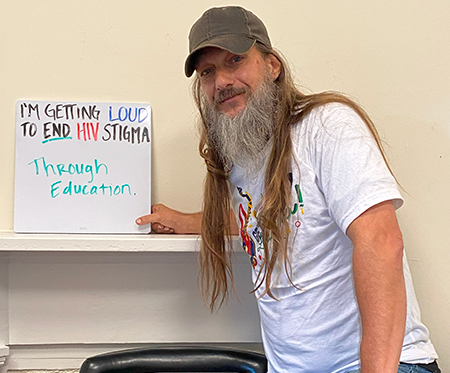 Ending the HIV epidemic in Louisiana is less about ending HIV than it is about addressing the intersections and social determinants of health which drive the epidemic. Today, HIV is a manageable chronic condition and those taking effective treatment live long, healthy lives. Additionally, people living with HIV who have a viral load of 200 or less have no risk of sexually transmitting HIV to a partner.
Ending the HIV epidemic in Louisiana is less about ending HIV than it is about addressing the intersections and social determinants of health which drive the epidemic. Today, HIV is a manageable chronic condition and those taking effective treatment live long, healthy lives. Additionally, people living with HIV who have a viral load of 200 or less have no risk of sexually transmitting HIV to a partner.
Working to end the HIV epidemic means working with advocates and communities across Louisiana to address racism, poverty, homophobia, transphobia, sexism, ageism, education reform, policing and criminalization, reproductive justice, immigration reform, HIV criminalization, and so much more. Each of these areas serve as drivers of the epidemic by oppressing communities, entrenching systemic inequities, furthering stigma, and, ultimately, embedding barriers which prevent people from accessing HIV prevention and treatment services.
Addressing each of these drivers of the HIV epidemic will allow for a reduction in the number of new HIV diagnoses by expanding opportunities for all people to access critical prevention, treatment, and social services. We have the tools to end the HIV epidemic and whether HIV advocacy has been your life’s work, or you have never even considered how HIV impacts your community, WE NEED YOU! The time to end the HIV epidemic is now, but we must be intentional about creating mechanisms to coordinate, collaborate, and work across intersectional movements. Our ability to succeed in ending the HIV epidemic is fundamentally linked to the establishment of equity across the various systems and structures that are currently driving the epidemic.


We know that systemic racism has long impacted access to opportunity, financial stability, and quality healthcare. We must address the varied impacts of racism by bringing equity to educational institutions and employment practices both within the field of HIV and beyond. We must demand that our public health leadership, healthcare and service providers work to examine health disparities and overcome biases that negatively impact people of color; and we must hold partners who fail to work toward anti-racism accountable for those failures.

Financial security and stable housing are necessary to provide the security from which a person can take care of their essential needs, including their healthcare. Access to housing and living wages reduce behaviors that put people at risk of acquiring communicable infections, of experiencing violence and poor health outcomes. We believe that housing is prevention, and will stand with those fighting for economic justice and housing the houseless to help our communities achieve that security and wellbeing.

Stigma and discrimination based on gender identity and sexual orientation are still pervasive in our country. In Louisiana, LGBTQ+ persons are still not protected against discrimination under the law. Trans women of color continue to experience disproportionate rates of violence against them, including homicide, compared to other groups2. We must work in tandem with advocates in the LGBTQ+ movements to continue to demand equality and to create trans- and queer-inclusive spaces within the organizations in which we work, the communities in which we live, and the services which we provide.

We understand that power dynamics and gender-based expectations rooted in our patriarchal system still create challenges for women trying to advance in their education and careers, result in their making 81 cents to every man’s dollar3, and leave them more vulnerable to sexual abuse, harassment, and intimate partner violence. Expectations of masculinity also lead to participation in violence, reduced likelihood to utilize mental health services, and higher rates of suicide among men. We will stand with partners and policymakers to create balance, close the gender pay gap, and dismantle toxic masculinity.

We stand with the Reproductive Justice Movement, as ours is inextricably linked. We know that the right to bodily autonomy, to decide when and if to have a family, and the ability to raise your family in a safe environment intersects with all other aspects of our lives. Reproductive Justice is about access to contraception, STI testing and treatment, and comprehensive sex education. It is about the ability to make a living wage, to afford and access childcare and the creation of spaces that support parents and families, and so much more.

The policing of poor people and communities of color has long factored into economic and health disparities. !e criminalization of drug use, sex work, and disproportionate incarceration of and police violence against Black people has devastating, generational impacts on communities. Louisiana has, for many years, held the title for highest rates of incarceration in our country, making this commitment to work with advocates and activists calling to rebuild our justice and policing systems that much more important.

 The criminalization of HIV and other health statuses leads to further stigmatization of HIV and is antithetical to both the science of transmission as well as to the promotion of testing or status disclosure. It has detrimental impacts on prevention, health outcomes for people living with HIV, and is weaponized against people living with HIV to deliver harsher sentences for unrelated crimes. We must work in coalition to stop the criminalization of HIV to allow people living with HIV to do so without fear of persecution and as a key step to ending the epidemic.
The criminalization of HIV and other health statuses leads to further stigmatization of HIV and is antithetical to both the science of transmission as well as to the promotion of testing or status disclosure. It has detrimental impacts on prevention, health outcomes for people living with HIV, and is weaponized against people living with HIV to deliver harsher sentences for unrelated crimes. We must work in coalition to stop the criminalization of HIV to allow people living with HIV to do so without fear of persecution and as a key step to ending the epidemic.
In addition, we will stand with those fighting for more just immigration reform and education reform that better prepares our youth for the future, those fighting ageism and working for the
security and dignity for our aging population, those continuing the hard-fought battle against ableism, and all those working to gain and preserve human rights in their myriad ways.
With the prevention and treatment options we have today, new HIV diagnoses and HIV-related deaths could both be rare. What continues to propel HIV to epidemic levels is how each of the factors laid out above have worked together to create the inequities inherently responsible for preventing people from accessing critical services. In that vein, we must strive to act together and across movements to end systems of oppression which have resulted in the health inequities and disparities that are so apparent in the HIV landscape.

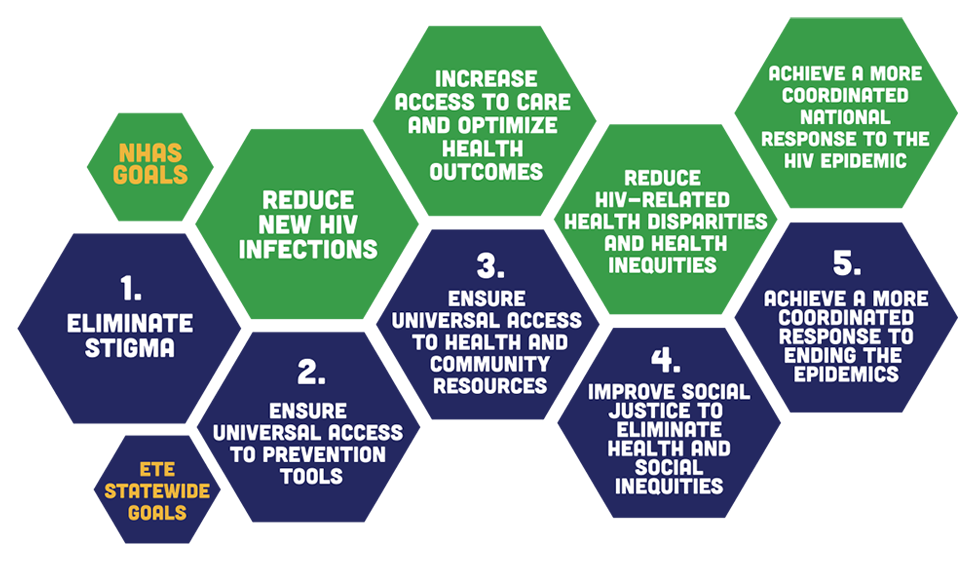



We want to make sure that we are not just consulting community members, but that community members are engaged at all levels of the process and that their needs and priorities guide our way.

We believe that people living with HIV, and other lived experiences, are the experts here and we want to make sure once again that theirs are the needs and priorities that come first.

We know many people face multiple barriers and systemic oppressions including racial and economic injustice, criminalization, housing insecurity, and stigmatization that impact their well-being, and as such, we will formulate our response to HIV in Louisiana through the intersections of these experiences.

One of our primary goals is to end the stigma that surrounds HIV, sexual behavior, sexually transmitted infections, drug use, sexuality and gender. We want to break down
stigma and misinformation, while lifting up the realities of what it means to live with HIV, including important truths such as U=U. Stigma and discrimination have no place in our plan or planning process!

As outlined in the 2017 A Declaration of Liberation: Building a Racially Just and Strategic Domestic HIV Movement by the Racial Justice Framework Group8, a Racial Justice Lens for the HIV movement demands that we:
- Integrate racial justice into our organizations and political strategies;
- Center those communities most impacted by the epidemic in leadership and decision-making;
- Root our efforts to advance a racial justice lens in the HIV movement in accountability to the communities that we lead;
- Ensure equity around allocation of resources — human, material, and financial; and
- Work to transform and, where necessary, dismantle institutions that uphold white supremacy and compromise the wellbeing of communities of color.

Our work is guided by the following core Human Rights Principles developed by the United
States Human Rights Network:
- Human Rights are universal, interdependent, indivisible, and inalienable;
- Human Rights movements must be led by those most directly affected by human rights violations;
- Human Rights advocacy and organizing should prioritize the struggles of the poor and most marginalized groups in society;
- Human Rights encompass civil, political, economic, social, cultural, environmental, sexual, and development rights for individuals, peoples, and groups.












 One of the goals of Get Loud Louisiana is to strengthen our community and lift our voices, together. We want to live in a Louisiana where all people—regardless of who they are, where they live, who they love, or their health status —feel supported and heard. We want to see PLWH leading the charge when it comes to creating supportive spaces and advocating for their health and human rights. We believe it is the work of allies to provide technical assistance, fundraising support, whatever is asked of them to support the needs, activities, and wishes of those with lived experience.
One of the goals of Get Loud Louisiana is to strengthen our community and lift our voices, together. We want to live in a Louisiana where all people—regardless of who they are, where they live, who they love, or their health status —feel supported and heard. We want to see PLWH leading the charge when it comes to creating supportive spaces and advocating for their health and human rights. We believe it is the work of allies to provide technical assistance, fundraising support, whatever is asked of them to support the needs, activities, and wishes of those with lived experience.

-
- Reduce HIV-related stigma in our communities, as well as overlapping stigmas around sexual orientation, gender identity, class, race, and drug use
- Create community education and stigma-reduction campaigns based on results from surveys such as the Stigma Index Project

- Build a network of Peer-Led support groups in every region of the state
- Identify, train and connect peer leaders
- Create paid opportunities for PLWH
- Connect network online and in-person

- Strengthen existing networks like Louisiana AIDS Advocacy Network
- Get community members involved in local politics and annual Legislative Awareness Days

- Work with community partners from a variety of sectors to support our causes and to educate their communities about HIV
- Train and engage allies in both formal and casual social se”ings to ensure they have clear understanding of what it means to be an ally – including using non-stigmatizing, person-first
language, understanding of intersectionality and the many ways we are impacted by our status, race, gender, class, and identity, and that they know how to operate on our behalf when needed



 Throughout the process of gathering input to create this plan, no matter who we talked to, three things were clear: we need to do a lot more to educate our communities and service providers, reduce stigma, and prevent new cases of HIV. The more education and knowledge we share about HIV and how it is transmitted, the more we begin to chip away at the stigma and fear that many people have around getting tested or sharing their status—and the more likely people are to engage in safer sex and drug use practices that reduce their risk.
Throughout the process of gathering input to create this plan, no matter who we talked to, three things were clear: we need to do a lot more to educate our communities and service providers, reduce stigma, and prevent new cases of HIV. The more education and knowledge we share about HIV and how it is transmitted, the more we begin to chip away at the stigma and fear that many people have around getting tested or sharing their status—and the more likely people are to engage in safer sex and drug use practices that reduce their risk.
We want to make sure that everyone knows about PrEP and where to access it, that condoms are commonplace, that U=U is a message heard in every home, and that PLWH are truly prevention warriors! The more we talk about HIV, healthy sexual and drug use behaviors, the more comfortable people will feel Getting LOUD about getting tested, knowing their status, as well as what it means to live a healthy life while positive. By 2025, we want to significantly decrease the number of people without reliable access to Prevention, Treatment, and Supportive Services. Here’s how:

- Increase the number of providers who prescribe and manage PrEP
- Increase use of TelePrEP, particularly amongst priority populations with lower rates of use such as women, people of color, and members of the LGBTQ+ community
- Conduct public health campaigns and events that focus on diverse communities within our state

- Make testing for HIV, STIs and Hep C normal and routine
- Provide routine tests at annual checkups, ER visits, and all healthcare facilities
- Increase use of mobile testing units, telehealth, in-home testing, and testing at community-based sites (for example, churches, barber shops, salons, community centers, health fairs, and college campuses)
- Make sure everyone who is sexually active has had AT LEAST one HIV test in their life
- Raise awareness about testing availability, treatment options, and what it means to live positive
- Expand opt-out testing and access to prevention tools (condoms, PrEP, etc.) within prison and jail systems

- Create positions for Community Health Workers (CHWs) in all regions of the state to provide outreach services
- Recruit and train individuals from the communities most impacted by HIV to become CHWs and peer educators
- Increase participation in community events
(education sessions, home health parties, health fairs) - Provide outreach and education in community-based sites (such as barbershops, beauty salons, community centers, bars, shopping areas, faith-based organizations, HBCUs) as well as virtually
- Create and support community advisory boards in all nine public health regions of the state to ensure local leadership from communities most impacted by HIV, STIs, and Hep C

- Increase partnerships between School Districts/Charter Systems and community partners to provide age-appropriate sex education to Louisiana students
- Survey parent a”itudes on sex education
- Share HIV/STI rates among adolescents and adults to local authorities and school leadership
- Develop online sex education tools
- Train parents on how to provide sex education in the home through online tools and curriculum
- Advocate for updated legislation requiring medically accurate, age-appropriate, inclusive sex education be provided in public and charter schools, and allowing school-based surveys such as the YRBSS to ask our youth about risk-related behavior

- Ensure statewide access to Syringe Services Programs (SSP)
(harm reduction supplies and needle availability) - Expand mobile SSPs with outreach to rural areas
- Eliminate stigma around SSPs and people who use drugs
- Include safer sex and drug use information with outreach and services

- Create partnerships with HBCUs and universities/programs that have a high percentage of students of color to link to internship and work training opportunities
- Expand implementation of training programs for Black, Latinx, gay, trans, queer people to enter the HIV/healthcare workforce
- Create HR policies that value experience in hiring and promotion—placing value on lived experiences including, but not limited to experience with communities of color, the justice system, homelessness, drug use, alongside education and/or work experience
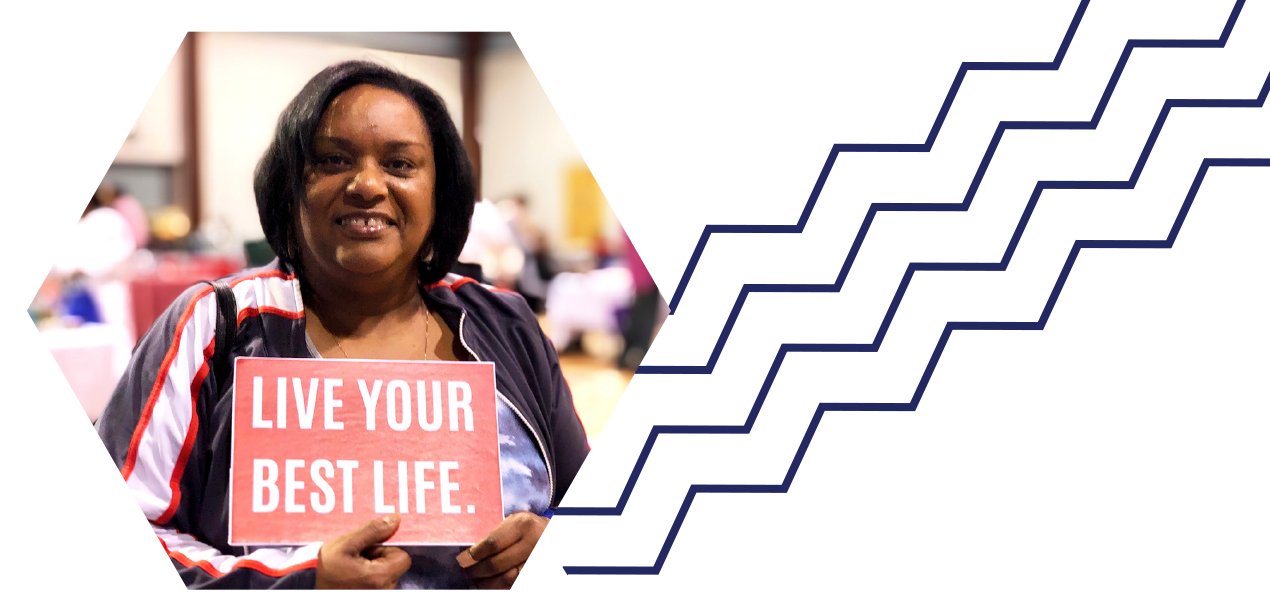



 Our goal is to make it easier for people across Louisiana to get into care, stay in care, and stay healthy. To us, this doesn’t mean just making sure that people are staying on their medication. It means having access to client-centered treatment and providers that clients feel comfortable with, not only for HIV services, but also for achieving optimal whole-person health. We recognize the many barriers people face when it comes to their health care, and we want to work with our community to meet them where they are, and to find solutions to overcome those barriers together. We will work with providers and community-based organizations to:
Our goal is to make it easier for people across Louisiana to get into care, stay in care, and stay healthy. To us, this doesn’t mean just making sure that people are staying on their medication. It means having access to client-centered treatment and providers that clients feel comfortable with, not only for HIV services, but also for achieving optimal whole-person health. We recognize the many barriers people face when it comes to their health care, and we want to work with our community to meet them where they are, and to find solutions to overcome those barriers together. We will work with providers and community-based organizations to:
- Promote person-centered services
- Expand treatment options that work for clients no matter where they live and what modes of transportation they have access to
- Establish standards for clinics that provide accommodations for people who are not able access services during traditional clinic hours, or who might need support with childcare or the ability to bring their children with them to their appointments
- Work to create inclusive spaces where all are welcome regardless of gender expression, sexual orientation, housing status, employment status, drug use, language spoken, or immigration status

- Establish minimum standards and recommendations to ensure all facilities are adequately screening
- Streamline referral systems between HIV service agencies and mental health, dental, and vision care providers
- Expand use of peer support for newly diagnosed persons experiencing long wait times for certain types of services or who in need of additional support
- Strengthen mental health workforce at HIV service agencies and expand access to telemedicine mental health visits

- Develop HIV-competent provider network and list
- Develop relationships and provide training with new providers to expand the number of HIV-competent providers in our network
- Develop relationships with Hepatitis C and STI programs to integrate and strengthen testing, resources, and services when appropriate

- Increase community access to up-to-date, accurate medical information about HIV/Hep C/ STIs, as well as where to access treatment and supportive services
- Provide education and training on health systems and the health care landscape to all clients entering care with additional learning opportunities offered annually

- Ensure that all patients, providers, and the community at-large are aware of and understand U=U and how it impacts them
- Utilize peer support models to link all people who are newly diagnosed with HIV
(and/or Hep C) with a peer mentor to help people get linked to care and to stay in care - Ensure at least 80% of people who are newly diagnosed can start ARV meds within 7 days of diagnosis
- Increase transportation support for people living with HIV to access clinic appointments, support sessions, and pharmacy services throughout the state of Louisiana
- Reduce distance barriers and increase access to HIV care and treatment through the use of telemedicine and mobile health units

- Use best practices to conduct outreach while building trust within community
- Offer testing and linkage to care through local consulates
- Assess existing policies and promote policies to ensure access to testing and treatment for all, regardless of immigration status
- Ensure Spanish-speaking staff and translators are available and located at facilities


We know that people living outside of our major cities face unique barriers to accessing care and services, maintaining confidentiality, and dealing with stigma and discrimination. While historically resources have been more limited in our rural communities, one of our goals is to center smaller cities and rural communities in our efforts to End the HIV Epidemic.

 We want to make sure that rural voices are heard and that their needs are prioritized. We want to raise awareness about how to prevent HIV and what it means to live with HIV (and what it doesn’t). We want to break down the misconceptions, fear, and stigma around HIV so that we can build community, capacity, and power across the state to improve the lives of those most impacted.
We want to make sure that rural voices are heard and that their needs are prioritized. We want to raise awareness about how to prevent HIV and what it means to live with HIV (and what it doesn’t). We want to break down the misconceptions, fear, and stigma around HIV so that we can build community, capacity, and power across the state to improve the lives of those most impacted.

- Organize community outreach events tailored to specific groups (including but not limited to youth groups, young same-gender-loving African American men, African American women, people of transgender experience) with local partners and gatekeepers around the state
- Create agreements and improve referrals systems between HIV service agencies and primary health care centers, social services organizations to improve linkage to care for people diagnosed with HIV

- Increase use of mobile testing by expanding the Community Health Worker workforce and procuring and equipping additional mobile health units
- Expand testing at non-traditional sites through workplace wellness programs
- Provide options for home health visits through Ryan White funded agencies
- Offer in-home testing for HIV, STIs, and Hep C
- Expand use of telehealth for HIV and STI screening, treatment, case management, and to prescribe and manage PrEP


We believe that public health funding, resources, policy, and programs should be informed by both the data and the community. We need to improve data sharing and utilization, while maintaining and respecting confidentiality for our clients and residents. We have to measure what we don’t know, monitor our progress, and allocate funding and resources based on need. We must advocate for policies that both allow us to implement solutions that work for the community and allow us to reach our target outcomes.

 We want to go beyond ending the criminalization of HIV. We want to end the criminalization of poverty and vulnerable populations. In order to end stigma and the epidemics of HIV and Hep C, we need to put an end to discrimination based on race, sexuality, gender and gender identity, socio-economic status, immigration status, and HIV status. We recognize the lives of PLWH are often impacted by people not working in HIV, as such some of the strategies below seek to expand non-traditional stakeholder engagement.
We want to go beyond ending the criminalization of HIV. We want to end the criminalization of poverty and vulnerable populations. In order to end stigma and the epidemics of HIV and Hep C, we need to put an end to discrimination based on race, sexuality, gender and gender identity, socio-economic status, immigration status, and HIV status. We recognize the lives of PLWH are often impacted by people not working in HIV, as such some of the strategies below seek to expand non-traditional stakeholder engagement.

- Use data to inform public health activities
- Expand Data-to-Care Programs to link patients to care
(use pharmacy, Medicaid, Emergency Department, and Parish Jail data to better understand
who is in need of services) - Use data to evaluate where improvements are needed and work to increase the number of people who know their status, are in care, and who are virally suppressed

- Update HIV Criminal Statutes
- Work with policymakers and coalition partners to dra% and enact policies that build protection from discrimination into our laws (for PLWH, LGBTQ+ persons, immigrants)
- Integrate standards for equitable treatment of all people into all systems that PLWH and those at risk utilize to reduce criminalization by developing model policies and training staff on their responsibilities related to the Americans with Disabilities Act (ADA), cultural humility and anti-racism
- Conduct advocacy campaigns at the local and state level to raise awareness around HIV, HIV-related stigma and discrimination, and policies that intersect with the lives of PLWH and affected communities
- Create learning and training opportunities within universities and health professions to expand knowledge around HIV, STIs and Hep C for all providers and to train more Infectious Disease specialists
- Create learning and training opportunities for all providers of social services to reduce stigma and better understand the needs of those living with or vulnerable to HIV, including gender, sexual and ethnic minorities

- Maintain and grow our Statewide Planning Group through regular meetings and coalition-building
- Monitor, evaluate and share our progress with transparency through community-friendly platforms
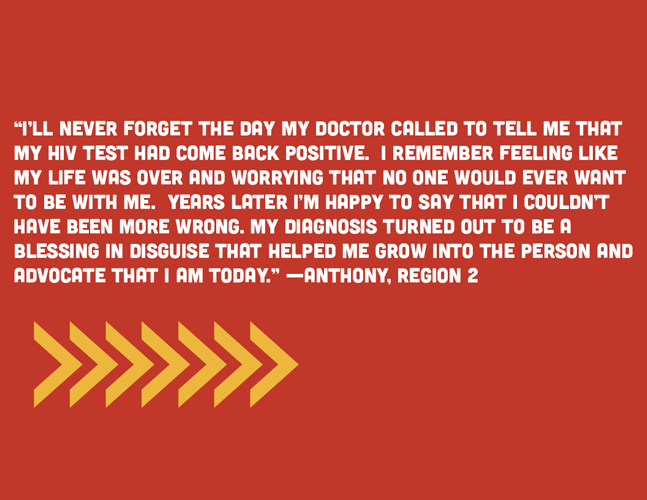
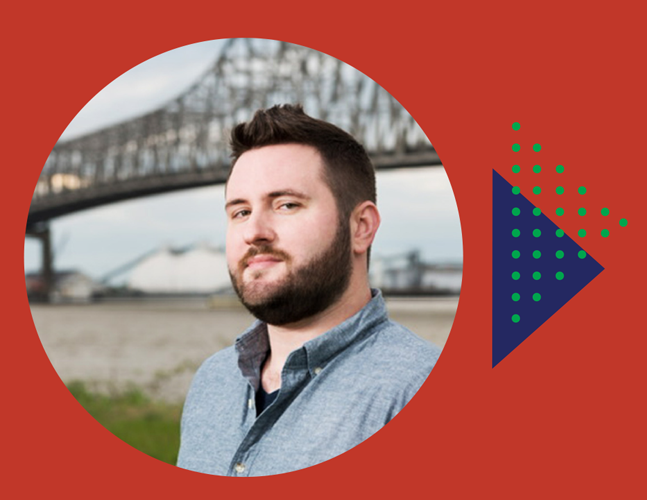





 We know that we have work to do, and we know we can’t do it alone.
We know that we have work to do, and we know we can’t do it alone.
HIV has been a part of our lives for over four decades and though we make advances in treatment and prevention methods every day, systemic barriers continue to hold us back in our goals to ensure health and wellness for people living with HIV and to eliminate new transmissions. !e barriers we face can no longer be solved by science alone, or by the small but mighty community of advocates, providers, and public health workers in the HIV sphere, alone. We cannot eliminate poverty, house everyone experiencing homelessness, or rid our service providers of racism, homophobia and transphobia, alone. We cannot educate our entire populace about safer sex and testing, nor erase the stigma ingrained in their minds, alone.
As you can see, many of the strategies we have laid out depend on engaging others and finding allies across different spaces in our communities. We will need to expand our partnerships and work hand-in-hand with policymakers, educators, law enforcement, primary care and mental health providers, housing advocates, disability rights activists, faith leaders, community gatekeepers, and everyone in between.
Society at large still harbors too many harmful beliefs that keep PLWH living in fear and silence. We need those allies who feel safe in doing so, to break that silence and get loud
by starting to talk to their friends and families – about sex, HIV, and STI prevention. Only then can we end the stigma that prevents people from ge”ing tested or seeking treatment, and isolates people from their support systems. Only then can we End the Epidemic. So, as we move forward into implementing our plan, we are going to need you to come along… AND GET LOUD ABOUT IT!


